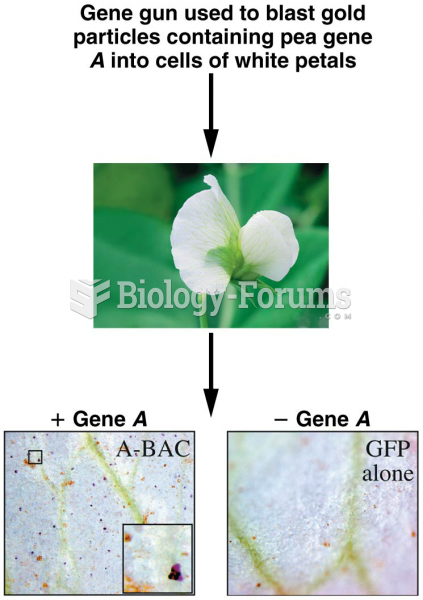|
|
|
Increased intake of vitamin D has been shown to reduce fractures up to 25% in older people.
The average human gut is home to perhaps 500 to 1,000 different species of bacteria.
The Food and Drug Administration has approved Risperdal, an adult antipsychotic drug, for the symptomatic treatment of irritability in children and adolescents with autism. The approval is the first for the use of a drug to treat behaviors associated with autism in children. These behaviors are included under the general heading of irritability and include aggression, deliberate self-injury, and temper tantrums.
Urine turns bright yellow if larger than normal amounts of certain substances are consumed; one of these substances is asparagus.
Inotropic therapy does not have a role in the treatment of most heart failure patients. These drugs can make patients feel and function better but usually do not lengthen the predicted length of their lives.







